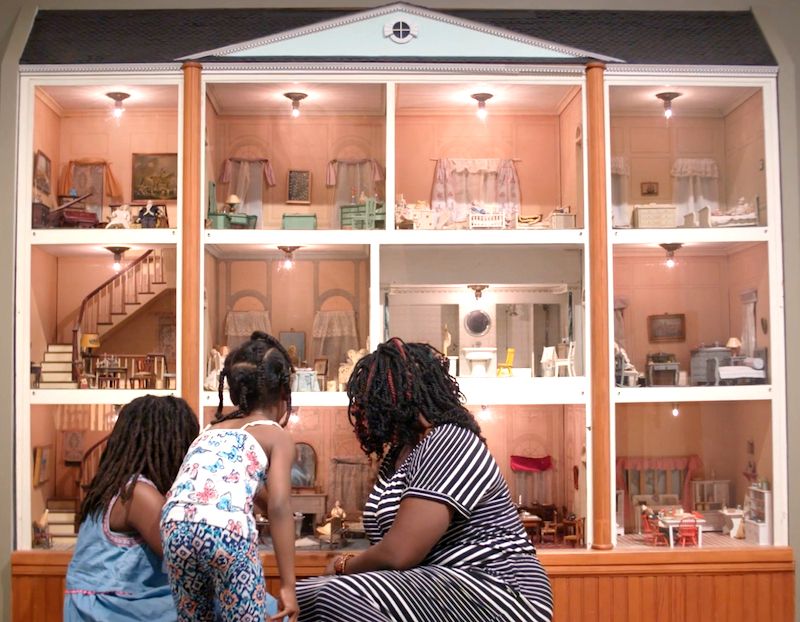
Art is Perspective 2018
Andrea Pierre and her young daughters had a touchstone at Mia, a small doll of an African-American maid who sparked conversations about race and history and opportunity. And then they didn’t.
The figure was removed from the dollhouse donated by the estate of Mary Griggs Burke—where she stood before a sink, ostensibly washing dishes—after complaints that she represented a stereotype. But when Pierre mentioned its disappearance to Mia, a larger dialogue ensued.
Filmmakers documented Pierre discussing the doll and uncomfortable issues around race with other African-American women: Erin Sharkey, Junauda Petrus, and Aisha Mgeni. Then, in early 2018, Mia opened itself to a public discussion about the issues, called “We Need to Talk.” The women went onstage at the museum to debate the best possible outcome for Mia, visitors, and the doll.
In the end, the doll returned to the dollhouse in a more prominent position: in the nursery, standing over a cradle, facing viewers. It’s where she appears in a photograph of the dollhouse as it used to be, before it was delivered to Mia.
An iPad nearby explains this background, so that the conversations about race and representation, like those that Pierre and her daughters have had, can continue.
